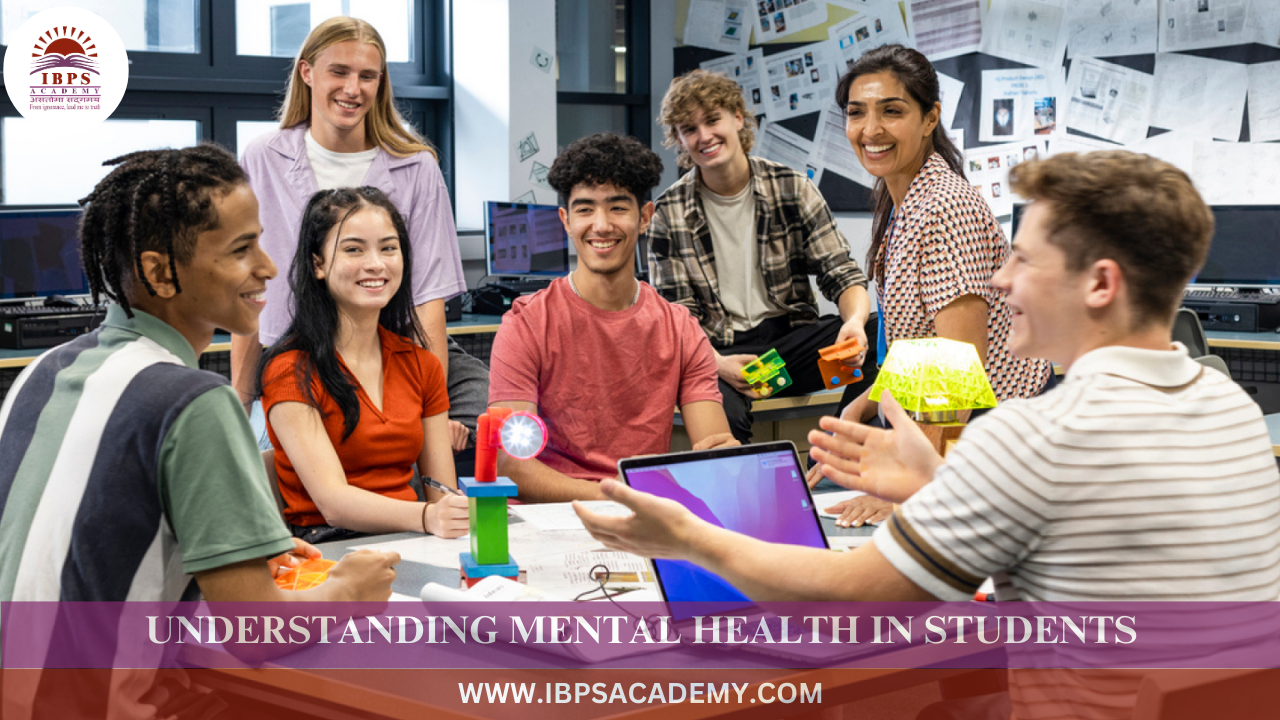UNDERSTANDING MENTAL HEALTH IN STUDENTS
Published on: Feb 25, 2025
UNDERSTANDING MENTAL HEALTH IN STUDENTS
Understanding mental health in students is critical to fostering an environment where they can thrive academically, socially, and emotionally. Students, like anyone else, experience various mental health challenges, but the pressures of academic life, social dynamics, and personal development can exacerbate these issues.
Here are some key points to consider when understanding mental health in students:
1. Prevalence of Mental Health Issues
Mental health problems are common among students. Conditions such as anxiety, depression, stress, and eating disorders are frequently reported. According to studies, a significant number of students experience mental health challenges, with some reporting feelings of overwhelming stress and loneliness.
2. Factors Influencing Mental Health
Several factors contribute to students’ mental health, including:
- Academic Pressure: High expectations and the pressure to perform well academically can cause stress and anxiety.
- Social Media: The impact of social media, including cyberbullying, body image issues, and unrealistic comparisons, can lead to mental health struggles.
- Family Issues: Difficulties at home, such as divorce, financial instability, or parental expectations, can affect students’ emotional well-being.
- Transitions: Moving to a new school, adjusting to college life, or navigating changes in relationships can create stress.
3. Common Mental Health Issues in Students
- Anxiety: Students may feel anxious about exams, social situations, or future prospects. Anxiety can manifest as physical symptoms, including headaches or insomnia.
- Depression: Feelings of sadness, hopelessness, and a lack of interest in activities can lead to depression. Students may withdraw socially and lose interest in their studies.
- Stress: Balancing schoolwork, extracurricular activities, and personal lives can overwhelm students, leading to stress.
- Eating Disorders: Some students may develop unhealthy eating habits or disorders like anorexia, bulimia, or binge eating as a response to stress or body image issues.
- Substance Abuse: Some students may turn to alcohol or drugs as a coping mechanism.
4. Impact of Mental Health on Academic Performance
Poor mental health can interfere with concentration, memory, and motivation, all of which affect a student's ability to succeed academically. High stress levels, in particular, can impair cognitive functioning and hinder learning.
5. Signs That a Student May Need Support
It’s important to recognize when a student might need mental health support. Some common signs include:
- Withdrawal from social activities
- Significant changes in mood or behavior
- Poor academic performance despite effort
- Changes in sleeping or eating habits
- Expressions of hopelessness or self-harm
6. Supporting Students’ Mental Health
Schools, families, and communities can take several steps to help students:
- Open Dialogue: Encouraging open conversations about mental health reduces stigma and helps students feel supported.
- Access to Resources: Providing access to counselors, therapists, and mental health professionals is crucial.
- Creating a Supportive Environment: Encouraging a balance between academic demands and personal well-being, fostering positive peer relationships, and promoting self-care practices are all important.
- Teaching Coping Skills: Educating students about stress management, mindfulness, and healthy coping mechanisms can help them navigate challenges.
- Peer Support Programs: Peer counseling or mentorship programs can offer students a safe space to talk and seek guidance.
7. The Role of Educators
Teachers and school staff play a key role in identifying students who may be struggling and providing necessary referrals to mental health resources. They can create an inclusive and supportive environment, integrate mental health awareness into the curriculum, and encourage positive mental health practices.
8. Breaking the Stigma
One of the most important goals in addressing student mental health is reducing the stigma surrounding mental health issues. This allows students to seek help without fear of judgment and helps create a more open and understanding school environment.
CONCLUSION
In conclusion, understanding mental health in students is vital to fostering a supportive and nurturing environment that allows them to succeed both academically and personally. Mental health challenges, such as anxiety, depression, and stress, are common among students and can significantly impact their well-being and academic performance. Recognizing the factors that contribute to these challenges—such as academic pressure, social media, family dynamics, and life transitions—helps us better support students in navigating these difficult experiences.


